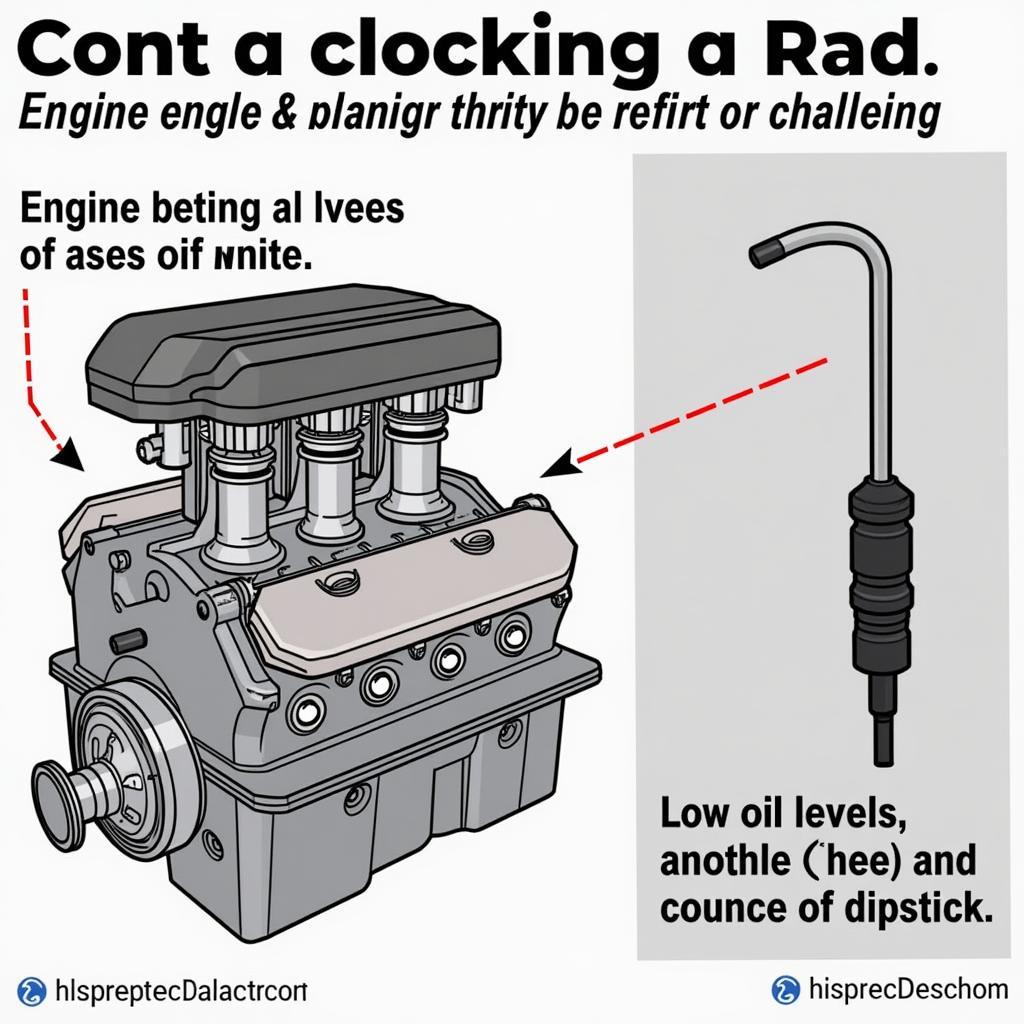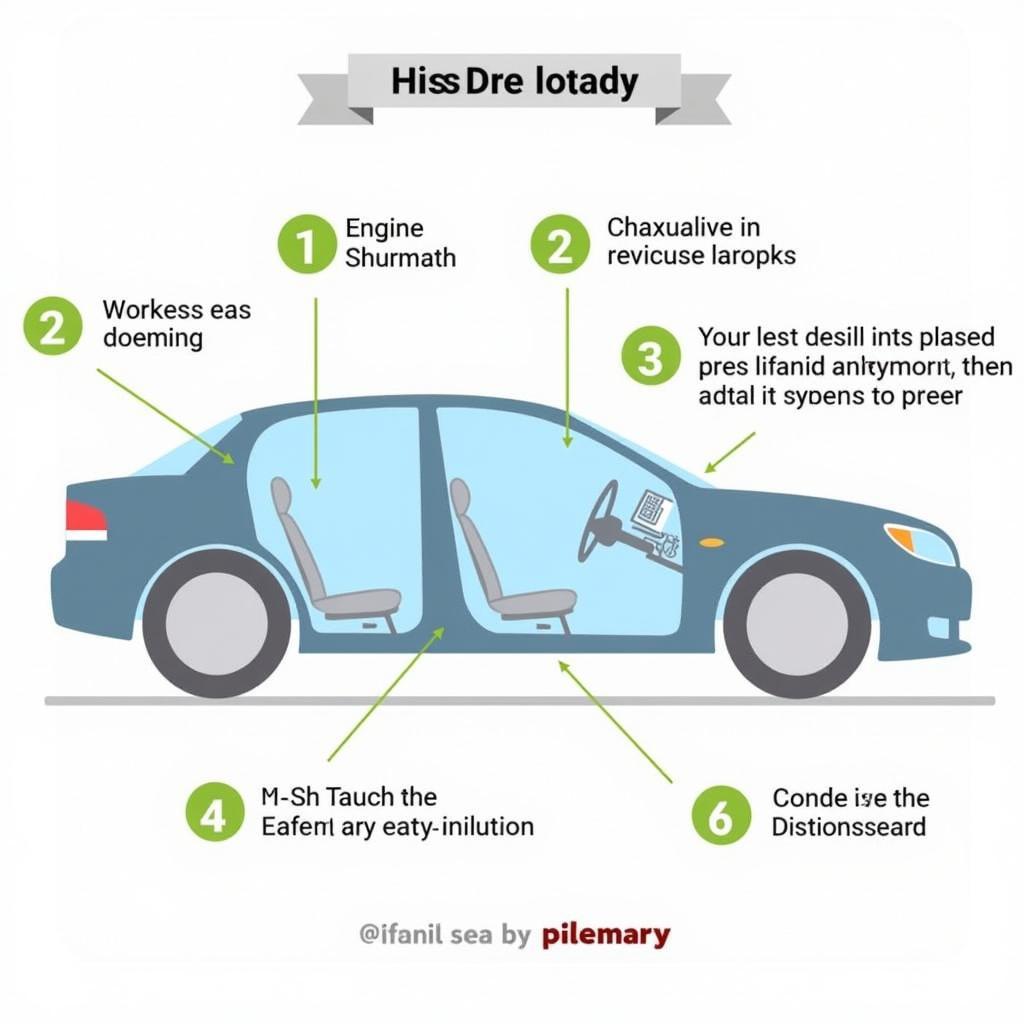Troubleshooting car noises can be frustrating. A strange squeak, a persistent rattle, or a sudden grinding noise can all signal underlying issues. This article will help car owners, mechanics, and technicians identify the source of different noises made by cars and offer potential solutions. Understanding these sounds can save you time and money on repairs and ensure your safety on the road.
Identifying Common Car Noises
A car’s intricate system of moving parts can create a symphony of sounds, and not all are cause for alarm. However, learning to distinguish normal operating sounds from those indicating problems is crucial. Let’s explore some common car noises and their potential causes:
Squealing Brakes
Squealing brakes often indicate worn brake pads. The high-pitched squeal is designed to alert you when the pads need replacing. However, sometimes moisture or rust can also cause squealing. If the noise persists after the brakes have dried, it’s time to have your brake pads inspected.
Clicking Sounds from the Engine
Clicking sounds emanating from the engine can be indicative of several issues. Low oil pressure can cause a rhythmic clicking, as can a failing lifter or a problem with the valves. Ignoring this noise can lead to serious engine damage.
 Engine Clicking Noise Diagnosis
Engine Clicking Noise Diagnosis
Grinding Noises When Braking
If you hear a grinding noise when applying the brakes, it signifies that the brake pads have worn down completely, and the metal backing plates are rubbing against the rotors. This can cause severe damage to the rotors and significantly reduce braking performance. Immediate attention is required.
Knocking Noise from the Engine
A knocking or pinging sound coming from the engine, especially during acceleration, often points to a problem with the combustion process. This could be due to low-octane fuel, carbon buildup, or more serious issues like worn bearings or connecting rods.
Hissing Sounds
Hissing sounds can indicate a variety of problems, from a vacuum leak to a problem with the cooling system. A leak in the exhaust system can also produce a hissing sound. Identifying the precise location of the hiss is crucial for accurate diagnosis.
 Locating Hissing Noises in a Car
Locating Hissing Noises in a Car
Whining Sounds from the Steering
A whining noise when turning the steering wheel often suggests a problem with the power steering system. Low power steering fluid or a failing power steering pump are common culprits.
Humming or Growling Tires
Tires that hum or growl while driving could indicate uneven wear, improper inflation, or a wheel bearing issue. Regularly rotating your tires and maintaining correct tire pressure can help prevent uneven wear. However, a persistent growl may require a mechanic to inspect the wheel bearings.
Diagnosing and Addressing Car Noises
While this guide provides a general overview, pinpointing the exact cause of a car noise requires careful diagnosis. Here are some steps you can take:
- Listen carefully: Pay attention to when the noise occurs, its intensity, and any related circumstances (e.g., turning, accelerating, braking).
- Check fluid levels: Ensure all essential fluids, such as engine oil, coolant, and power steering fluid, are at the correct levels.
- Inspect visually: Look for any obvious signs of damage, leaks, or worn parts.
- Consult a professional: If you are unable to identify the source of the noise, it’s always best to consult a qualified mechanic.
Similar to tie rod problems in cars, certain noises can be difficult to pinpoint without professional help.
Why Addressing Car Noises is Important
Ignoring unusual car noises can lead to more significant problems and costly repairs down the line. Addressing these issues promptly ensures your safety on the road and helps maintain the longevity of your vehicle.
Just like understanding the problem with hybrid cars, recognizing and addressing specific noises in any type of vehicle is vital for maintaining its optimal performance.
Conclusion
Different noises made by cars can offer valuable clues about potential problems. By understanding these sounds and taking appropriate action, you can prevent major issues and keep your car running smoothly. If you are unsure about the source of a noise, consulting a qualified mechanic is always the best course of action. For personalized support and assistance, feel free to connect with AutoTipPro at +1 (641) 206-8880 or visit our office located at 500 N St Mary’s St, San Antonio, TX 78205, United States.
FAQ
- What is the most common cause of squealing brakes? Worn brake pads are the most frequent cause.
- Should I be worried about a clicking noise from my engine? Yes, it could indicate a serious problem.
- What does a grinding noise when braking mean? Your brake pads are completely worn down.
- What causes a knocking noise from the engine? Issues with the combustion process, such as low-octane fuel or worn components.
- Why is my steering wheel making a whining noise? Likely a problem with the power steering system, such as low fluid.
- What can cause humming tires? Uneven wear, improper inflation, or a wheel bearing problem.
- When should I consult a mechanic about a car noise? If you are unable to identify the source or if the noise persists.





Leave a Reply